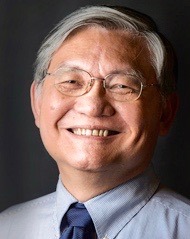
Photo by Tri Nguyen on Unsplash
What are the weapons of our warfare?
I have always been intrigued by how the early church grew so rapidly. To quote Alan Kreider:
The growth of the Christian church in the Roman Empire is mysterious. Scholars who spend their entire lives studying this phenomenon continue to find it surprising.
Why did this minor mystery religion from the eastern Mediterranean — marginal, despised, discriminated against — grow substantially, eventually supplanting the well-endowed respectable cults that were supported by the empire and aristocracy?
What enabled Christianity to be so successful that by the fifth century it was the established religion of the empire? (Alan Kreider, The Patient Ferment of the Early Church [Grand Rapids, MI: Baker Academic, 2016], 1.)
For one thing, the early church had little by way of earthly power. They couldn’t afford to hire the Coliseum even if that was possible.
They couldn’t petition their MPs. They had no armies, and little by way of the riches of the world.
So how did they do it?
By the witness of their transformed lives.
In the third century, Cyprian, a bishop, wrote:
“Beloved brethren,” he wrote, “[we] are philosophers not in words but in deed; we exhibit our wisdom not by our dress, but by truth; we know virtues by their practice rather than through boasting of them; we do not speak great things but we live them.” (Kreider, 13)
What were some marks of the followers of Jesus in the days of the early church? Here are a few.
1. Holiness
We are not surprised that transformed by a holy God, followers of Jesus exhibited moral transformation. Cyprian:
. . . urges (Christians) not to commit “acts of the flesh and the body whereby the soul is stormed and captured. . . . Let patience be strong and stable in the heart, and then the sanctified body and temple of God will not be corrupted by adultery, innocence dedicated to justice will not be infected by the contagion of deceit, and the hand that has held the Eucharist will not be sullied by the blood stained sword.” (Kreider, 29)
2. Inclusiveness
The Christian community treated all equally irrespective of their gender, race, or social backgrounds. Followers of Jesus were brothers and sisters, equally valued.
As a convert from paganism to Christianity Lactantius (ca.250 – ca.325) identified himself with a community that characterises itself by patience. The community draws together people of widely varied backgrounds, “people of every sex, race, and age” who walk “the heavenly path” together. (Kreider, 33)
3. Love
Believers loved each other deeply. They were willing to die for each other.
“Vide,” the neighbours say, “look!” The Christians’ meetings may be private, but their effects can be seen in people’s lives. According to Tertullian (ca.155 – ca.240), the neighbours are attracted to this and attribute it to the Christians’ love for each other: “how they love one another . . . and how they are ready to die for each other.” Tertullian sees the Christians’ behaviour as the product of their conversion, which has made them “brothers.” (Kreider, 58)
4. Sacrificial service
Followers of Jesus would care for the suffering in society even at great personal cost. For example, in times of plague, many (not all) would not try to run away. They would nurse believer and non-believer alike, and some lost their lives doing so.
Drawing from the letter that Bishop Dionysius of Alexandria wrote in AD 260, two years after Cyprian died, concerning the responses of Christians to the plague in Egypt, (Rodney) Stark reconstructs the “elementary nursing” that Christians provided to plague victims; he also speculates that the Christians’ response to the plague markedly increased Christian numbers vis-à-vis pagans. (Kreider, 68–69)
5. Martyrdom
They would rather suffer and die for Jesus than renounce their allegiance to Him.
In the mid-second-century, author of the Epistle to Diognetus wrote this about the converting power of patient, embodied witness: “Do you not see how they are thrown to wild animals to make them deny the Lord and how they are not vanquished? Do you not see that the more of them are punished, the more do others increase? Justin Martyr (100–165) and Tertullian wrote in the same vein. Historians have come to a similar judgement: “Every public execution was a great and often successful advocating opportunity for the church.” (Kreider, 51)
Imagine the church in Singapore or Malaysia being famous for holiness, inclusiveness, love, sacrificial service, and the readiness to suffer and die for the Name of Christ!
We should not romanticise the past. The New Testament epistles alone will tell us that the early church was wracked with all sorts of problems. Nevertheless, there is still the matter of the incredible growth of the early church. And as Kreider and other scholars have noted, the most powerful statement of the reality of this new faith was the quality of the transformed lives of the adherents.
The churches grew in many places taking varied forms. They proliferated because the faith that these fishers and hunters embodied was attractive to people who were dissatisfied with their old cultural and religious habits, who felt pushed to explore new possibilities, and who then encountered Christians who embodied a new manner of life that pulled them toward what the Christians called “rebirth” into a new life. (Kreider, 12)
The world is going through rapid and massive changes.
From Singapore to Malaysia to the USA, the question arises again: “Is there hope for humankind?”
I don’t think the world needs Christ, or the church, for large buildings, big gatherings, or slick programmes.
With enough money, connections, smarts — you can get all that. Indeed you can get all that without the Cross.
But a new kind of humanity — now that’s different. Only God can do that. May our lives provoke the question for which Christ is the answer.
We are an independent, non-profit organisation that relies on the generosity of our readers, such as yourself, to continue serving the kingdom. Every dollar donated goes directly back into our editorial coverage.
Would you consider partnering with us in our kingdom work by supporting us financially, either as a one-off donation, or a recurring pledge?
Support Salt&Light




